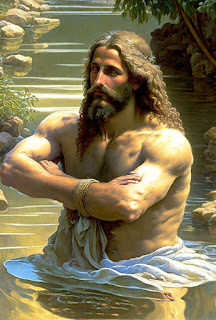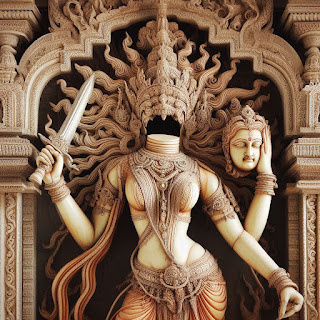John the Baptist
John the Baptist is a significant figure in several religious traditions, including Christianity, Islam, Mandaeism, and Gnosticism. His life and teachings are viewed differently by each religion, and his role in the development of their respective beliefs and practices varies. One common thread among these traditions is the importance of baptism and cleansing rituals, which John is often associated with.
From a Christian viewpoint, John the Baptist is a central figure in the New Testament. He is portrayed as a prophet who prepared the way for the coming of Jesus Christ, announcing his arrival and baptizing him in the Jordan River. John's baptism was seen as a symbol of repentance and a call to turn away from sin. Jesus himself referred to John as the greatest prophet and recognized the importance of his message. Christians often see John's life and teachings as a model for their own faith, as he embodied humility, selflessness, and devotion to God.
In Islam, John the Baptist is known as Yahya and is recognized as a prophet. He is mentioned several times in the Quran, where he is described as a righteous and devout servant of God who preached the message of repentance to his people. John is also associated with the importance of purification and cleansing, as he is said to have practiced ritual ablution and encouraged others to do the same.
The Mandaeans, a Gnostic sect with roots in ancient Mesopotamia, consider John the Baptist to be one of their primary prophets. They believe that John was sent by God to teach the importance of purification and the practice of the Mandaean baptismal ritual. In their view, John's baptism was not simply a symbolic act but an essential part of their religious practice, necessary for spiritual purification and salvation.
From a Gnostic viewpoint, John the Baptist is seen as a figure who embodied the true spiritual nature of humanity. Gnostics believed that the physical world was a flawed and corrupt creation, and that salvation could only be attained through knowledge of the true nature of the divine. John's role in this context was to awaken people to their spiritual potential and to guide them towards enlightenment. The baptismal ritual, in this view, was not so much a means of purification as a symbol of the individual's inner transformation and realization of their true nature.
In short, John the Baptist holds a significant role in several religious traditions, each with a unique perspective on his life and teachings. The importance of baptism and cleansing rituals is a common theme among these traditions, as John's message emphasized the need for repentance and purification as a means of drawing closer to the divine. Whether seen as a prophet, teacher, or spiritual guide, John's impact on religious thought and practice has endured through the ages.
Art by Che




Comments
Post a Comment